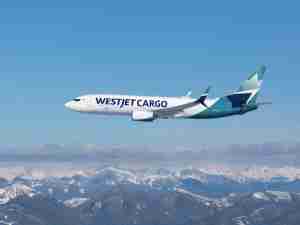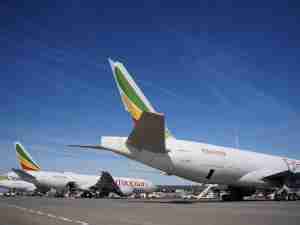Saudi Arabia will open up its airspace to all airlines flying in and out of Israel, a change that is part of President Joe Biden’s efforts to improve relations in the Middle East.
Israel and Saudi Arabia have no formal diplomatic ties and most airlines flying to or from Tel Aviv previously had to go around the kingdom.
The move is widely seen as a step toward broader normalization and marks a small win for Biden, who is visiting the Middle East this week in an effort to elicit the help of Saudi Arabia and other Arab allies in tempering oil prices.
“While this opening has long been discussed, now, thanks to months of steady diplomacy between my administration and Saudi Arabia, it is finally a reality,” Biden said in a statement. “Saudi Arabia’s decision can help build momentum toward Israel’s further integration into the region.”
The United Arab Emirates, Bahrain and Morocco launched direct flights to Israel for the first time after establishing diplomatic ties with it in late 2020 through the Abraham Accords.
As part of the accords, Dubai’s Emirates Airline, Bahrain’s Gulf Air and Israeli airlines including flag carrier El Al were permitted to use Saudi airspace for Dubai-Tel Aviv and Manama-Tel Aviv routes, but Israel was restricted from using it for other commercial flights.
With the exception of Air India, other foreign airlines weren’t authorized to fly over Saudi Arabia when operating to Tel Aviv, though they could for other routes. Airlines have been lobbying for such permission, one person familiar with the matter said earlier.
El Al welcomed a change it said would open up new destinations and shorten travel times to the Far East.
Israeli Prime Minister Yair Lapid thanked the Saudi leadership for the decision, which he said followed “a long road of intense and covert diplomacy with Saudi Arabia and the United States.”
Weeks before Biden’s visit, people familiar with the matter told Bloomberg that the overflight arrangements would likely come in exchange for a deal involving two Red Sea islands that Egypt agreed to transfer to Saudi Arabia in 2017.
Tiran and Sanafir are part of Israel’s 1979 peace treaty with Egypt and the changes require an agreement on security and freedom of navigation for Israel through the Gulf of Aqaba.
Mike Herzog, Israel’s ambassador to the US, said on Friday that the issue had now been addressed.
“Freedom of navigation will be maintained,” he said in an interview with 102FM, without elaborating further. The ministry of foreign affairs and the prime minister’s office declined to comment on his remarks.








